Where is nitinol wire made?
2024-08-09 20:46:15
Nitinol wire, an alloy of nickel and titanium, is renowned for its unique properties, including shape memory and superelasticity. These attributes make it indispensable in various industries, particularly in medical devices and high-tech engineering applications.
How is Nitinol Wire Manufactured?
Raw Material Sourcing
The manufacturing of nitinol wire begins with sourcing high-quality raw materials. Nickel and titanium are the primary components, and their purity is critical to the final product's performance. Manufacturers source these materials from reputable suppliers to ensure they meet stringent quality standards.
Melting and Alloying
The next step in the process involves melting and alloying the nickel and titanium. This typically occurs in a vacuum or an inert gas environment to prevent contamination. Advanced techniques, such as vacuum induction melting (VIM) and vacuum arc remelting (VAR), are employed to produce a homogenous alloy with precise composition.
Hot and Cold Working
Once the alloy is formed, it undergoes a series of hot and cold working processes to achieve the desired wire diameter and mechanical properties. Hot working involves heating the alloy to make it malleable, while cold working is done at room temperature to enhance strength and elasticity. Drawing, rolling, and annealing are common methods used during this stage.
Heat Treatment
Heat treatment is a crucial step in imparting the shape memory and superelastic properties to nitinol wire. The wire is heated to a specific temperature and then rapidly cooled. This process alters the wire's crystalline structure, allowing it to return to its original shape after deformation.
Surface Treatment and Finishing
After heat treatment, the wire undergoes surface treatment and finishing. This includes cleaning, polishing, and coating to improve its corrosion resistance and biocompatibility, especially for medical applications. The finished product is then subjected to rigorous testing to ensure it meets all required specifications.
What are the Primary Applications of Nitinol Wire?
Medical Devices
Nitinol wire's biocompatibility and unique mechanical properties make it ideal for medical devices. It is widely used in stents, guidewires, orthodontic archwires, and surgical instruments. Its ability to return to a predefined shape after being deformed is particularly valuable in minimally invasive surgeries.
Aerospace and Defense
In the aerospace and defense sectors, nitinol wire is used in actuators and other components that require high strength and flexibility. Its superelasticity helps absorb shock and vibration, enhancing the performance and durability of aircraft and military equipment.
Consumer Electronics
Nitinol wire is also making its way into consumer electronics, particularly in the development of flexible and resilient components. For instance, it is used in the manufacture of headphones and wearable devices that can withstand bending and twisting without breaking.
Robotics and Automation
In robotics and automation, nitinol wire is employed in the creation of actuators and sensors. Its ability to undergo significant deformation and then return to its original shape makes it an excellent material for robotic joints and other moving parts.
Why is Quality Control Crucial in Nitinol Wire Production?
Ensuring Material Purity
Quality control starts with ensuring the purity of the raw materials. Any impurities can significantly affect the performance of the final product. Therefore, manufacturers conduct thorough inspections and testing of the nickel and titanium before they are used in the alloying process.
Precision in Alloy Composition
The exact composition of the nickel-titanium alloy must be carefully controlled. Deviations in the ratio of nickel to titanium can lead to variations in the wire's properties. Advanced analytical techniques, such as X-ray fluorescence (XRF) and inductively coupled plasma (ICP) spectroscopy, are used to verify the alloy composition.
Consistency in Manufacturing Processes
Maintaining consistency in the manufacturing processes is essential to produce high-quality nitinol wire. This includes strict control over melting, alloying, working, and heat treatment processes. Automated systems and continuous monitoring help ensure that each batch of wire meets the desired specifications.
Rigorous Testing and Inspection
Before nitinol wire reaches the market, it undergoes rigorous testing and inspection. Mechanical testing, including tensile strength, elasticity, and fatigue resistance, ensures that the wire performs as expected under various conditions. Additionally, surface quality and dimensional accuracy are checked using advanced imaging techniques.
Compliance with Standards and Regulations
Manufacturers must comply with industry standards and regulations to ensure the safety and efficacy of nitinol wire, particularly for medical applications. Organizations such as the International Organization for Standardization (ISO) and the American Society for Testing and Materials (ASTM) provide guidelines that manufacturers must adhere to.
Conclusion: The Global Landscape of Nitinol Wire Manufacturing
Nitinol wire is produced by specialized manufacturers worldwide, each contributing to the supply chain of this critical material. Key regions include North America, Europe, and Asia, where companies leverage advanced technology and stringent quality control measures to produce high-quality nitinol wire.
Baoji Hanz Metal Material Co., Ltd., located in Baoji Titanium Valley Nonferrous Metals Base in China, is a leading producer of nitinol wire. Established on November 15, 2017, the company boasts a complete set of sophisticated production and processing equipment, excellent technology, and a professional sales and after-sales team. Their main business includes nitinol shape memory alloy, superelastic nitinol alloy, nickel-titanium alloy, industrial furnace, mechanical equipment design, manufacturing, production, and service. Baoji Hanz is committed to the conversion of scientific research results and the localization of imported products, completing major projects such as high-purity metal material preparation, ultra-large and ultra-thin casting, and material development.
With a business philosophy of "leading technology, excellent quality, stable development, win-win cooperation," Baoji Hanz Metal Material Co., Ltd. invites partners from all sectors to seize business opportunities and create a better future together. For inquiries, please contact them at baojihanz-niti@hanztech.cn.
References
- "Manufacturing of Nitinol Wires"
- "Applications of Nitinol in Medical Devices"
- "Quality Control in Nitinol Production"
- "Nitinol Wire Production Process"
- "Nitinol in Aerospace and Defense"
- "Nitinol for Consumer Electronics"
- "Robotics Applications of Nitinol"
- "Baoji Hanz Metal Material Co., Ltd. Company Profile"
- "Standards for Nitinol Manufacturing"
- "Innovations in Nitinol Wire Production"
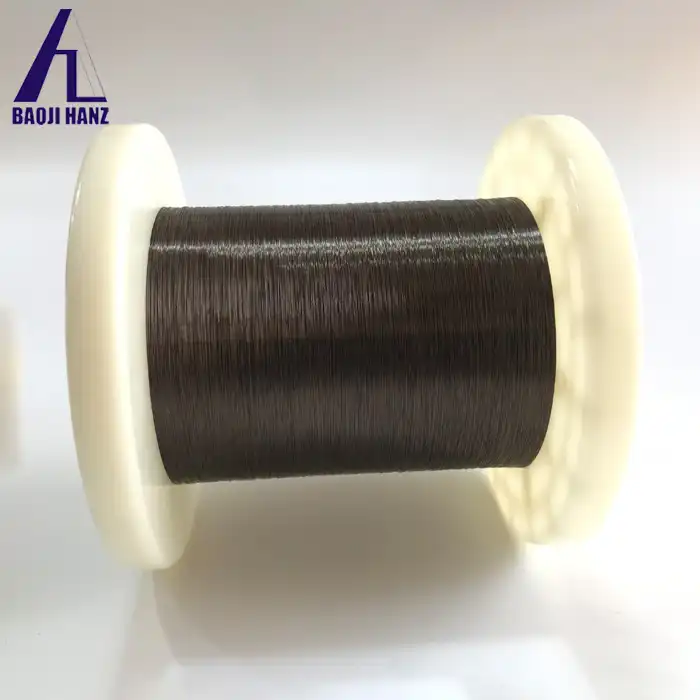
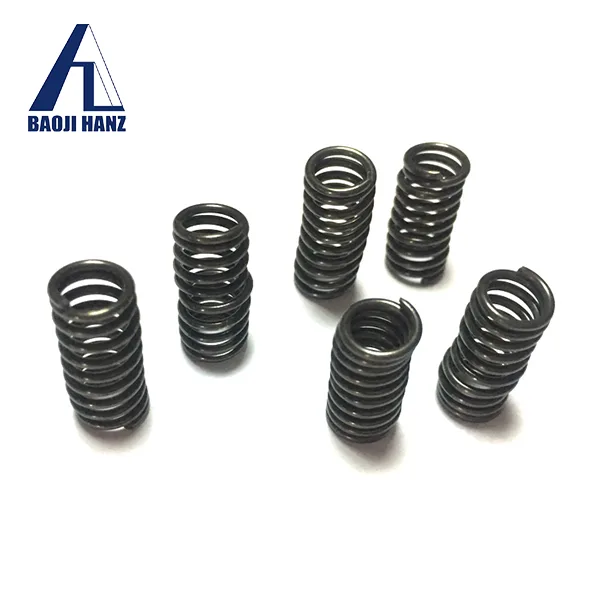
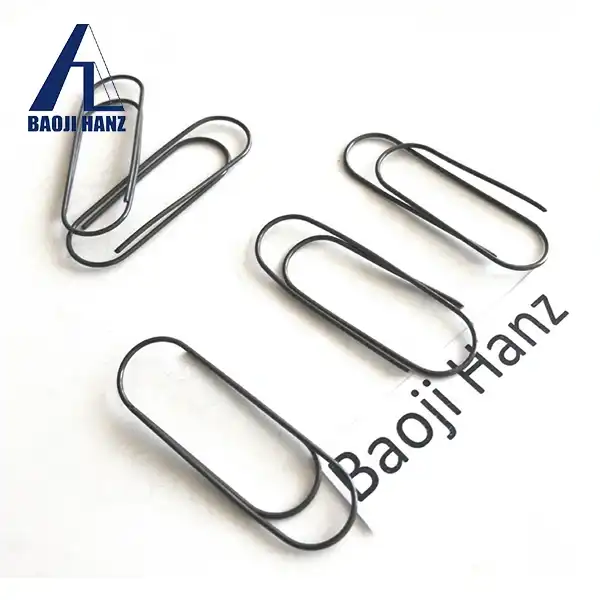
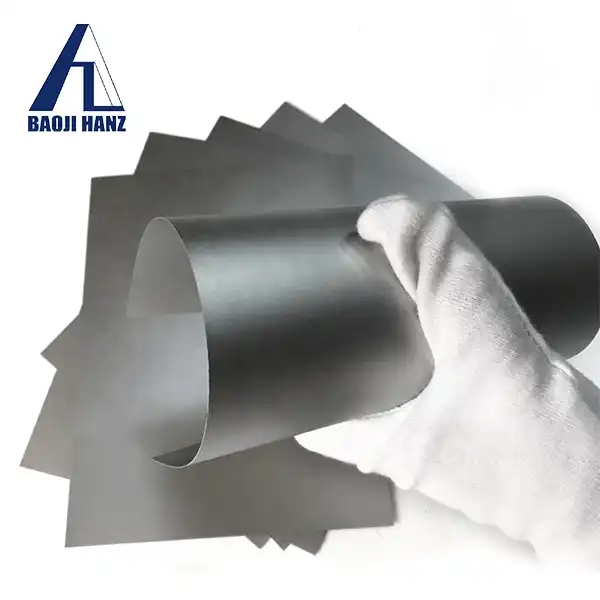
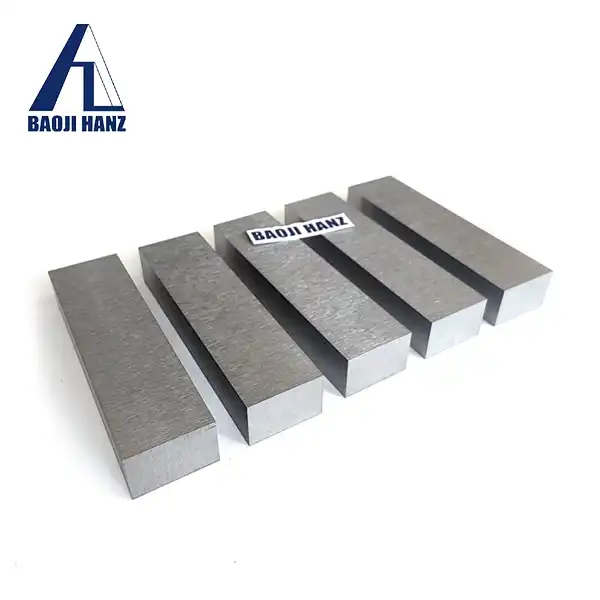
.webp)
.webp)
.webp)
